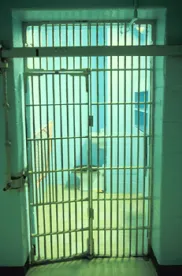Each year, juvenile courts in the United States handle roughly 1.6 million cases involving criminal allegations. And each year, an estimated 144,000 youth are placed in juvenile correctional facilities.
Many youth who spend time in the juvenile justice system struggle with low literacy levels, histories of home violence, substance abuse and mental health challenges. Most return to communities with high rates of crime and poor-performing schools. More than half of these youth have not completed the eighth grade, and two in three do not return to school upon their release.
We know that juveniles who are released from confinement are far more likely to succeed if they have access to supportive services that can help them go back to school and pursue a career. Some of these young people grew up without a father and found themselves lured into a gang to feel a sense of belonging.
But once they leave juvenile detention, there’s a window of opportunity when many youth may be looking for a lifestyle that doesn’t involve dealing or stealing. We have a compelling societal interest to give them a healthy alternative. If we don’t, most will go right back through the revolving door of our prison systems, and that means new victims can be created.
When that happens, we all lose.
Today, the Department of Labor announced grants of nearly $50 million to 25 organizations under two different grant programs that serve juveniles under our Re-Integration of Ex-Offenders initiative.
We know—historically—that young people face challenges finding that first job opportunity. For those with juvenile records, the challenges of entering the workforce can be especially great. So our grantees are focused on educational interventions to help these youth get their diploma or GED, continue their education, and pursue a fulfilling career.
These projects are opportunities to rebuild trust, so the community views these young people as assets rather than liabilities. By helping their neighbors in high-poverty communities, these young people also help themselves.
With the right supportive services, we can reduce recidivism and help these youth build healthy, productive futures. It’s never too late to help turn a life around. And we hope this funding will give youth a true second chance to make a contribution to their communities and our economy.



 />i
/>i

